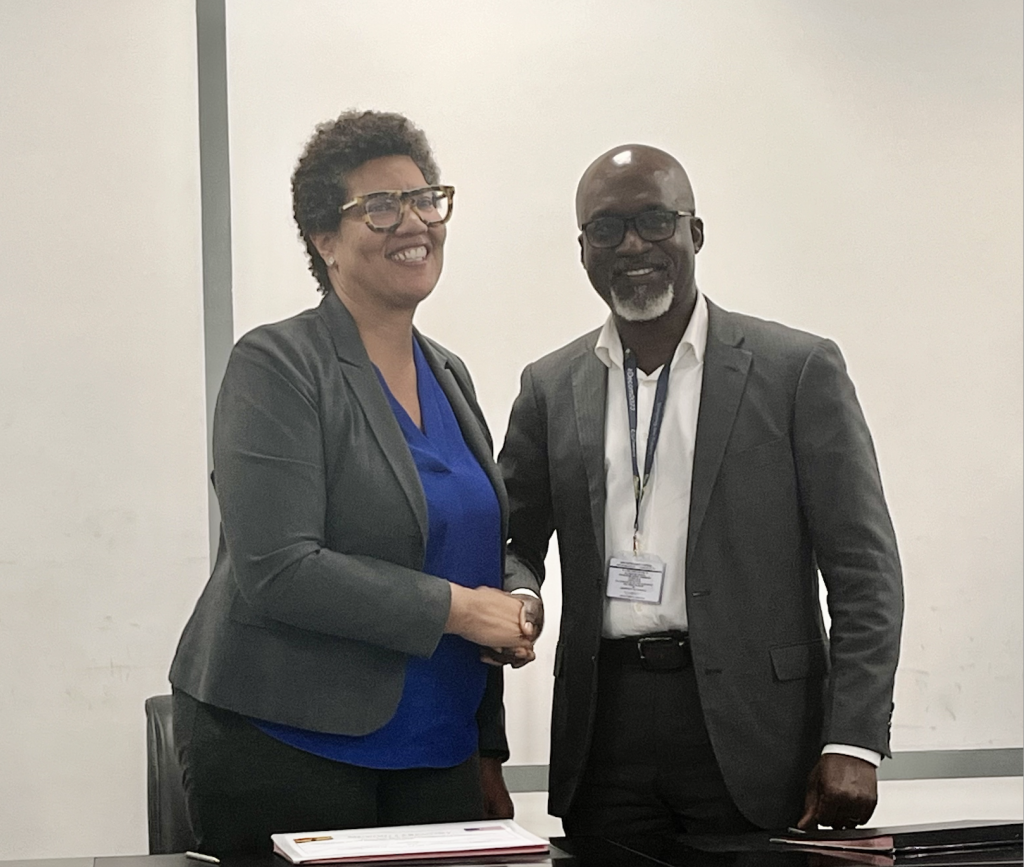Albert Oppong-Ansah
Accra, Aug. 2, GNA – The Ghana Atomic Energy Commission (GAEC) will be the home of Africa’s clean energy technology regional Centre to support the development of civil nuclear energy programmes across the continent.
The Centre will serve as a regional training hub for Ghana and other African countries considering nuclear energy as part of their economic development, energy security, and decarbonisation goals.
Focus areas will include vocational training and workforce capacity building (including certifications), augmentation of learning in academia and research organisations, energy infrastructure development, and megaproject planning and management.
The rest are nuclear reactor design and operation, cybersecurity and safeguards, safety analyses in support of U.S.-designed small modular reactors, nuclear licensing, application reviews, inspection and public education.
Professor Samuel Boakye Dampare, the Director-General, GAEC, who disclosed this in an interview with the Ghana News Agency after a signing ceremony on Wednesday in Accra, said it would spur the country’s nuclear programme.
Prof Dampare signed the letter of intent for GAEC while Ms Aleshia Duncan, the Deputy Assistant Secretary of the International Cooperation Office of Nuclear Energy at the US Department of Energy (DOE) initialed for her Organisation.
Through the training Centre, Prof Dampare stated that the US would offer additional technical expertise and training with support from its nuclear industry, national laboratories, and academic institutions.
He said: “Nuclear power programmes require personnel who have specific qualification training. The Centre when completed will come in handy to fill that gap.”
He explained that the training Centre would benefit stakeholders, including Nuclear Power Ghana and Nuclear Regulatory Authority.

Ms Duncan said the training Centre would build upon previous work in the country, which included a virtual training programme hosted by the United States that covered the fundamentals of civilian nuclear power programmes.
“This Centre will be a critical resource for Ghana and other African countries working to deploy nuclear technology to address energy challenges while contributing to sustainable development,” she said.
She added that: “It also symbolises the United States continued commitment to knowledge sharing, ensuring like-minded countries have access to technical, regulatory, and workforce development resources to successfully launch, and more importantly sustain, nuclear programmes.”
Ms Duncan noted that Ghana was the only country that had been clear and consistent in its resolve to harness the potential in nuclear and be a leader on the continent on integrated energy systems.
She stated that the initiative was in line with DOE’s key element to build regional leadership to support the continent develop its workforce in the nuclear sector to achieve its energy needs.
“We are focusing on supporting young people because the nuclear operation is a one hundred relationship, so it is important we grow and retain experience on the content,” she said.
DOE established the world’s first Clean Energy Training Center earlier this year in Poland to help jump-start the country’s domestic civil nuclear energy programme.
The Department is requesting an additional $8 million in the 2025 fiscal year 2025 to help establish similar hubs to support new and emerging nuclear energy programmes in Africa, Asia, and Central and Eastern Europe.
Ghana has approved the inclusion of nuclear technology into its power generation mix.
The move is in consonance with the global collective commitment to the sustainable availability of power, and the peaceful exploitation of nuclear energy to enhance rapid industrialisation and to propel economic growth.
Already, Ghana has settled on a preferred site and backup for its first nuclear power plant.
The plant will be the baseload power for industrialisation, address concerns of limited hydro sources, postulated decline of gas, cause tariff reduction for industries, desalination, and employment creation.
Government is expected to formally announce a company to build its first nuclear power plant from contenders, including France’s EDF, U.S.-based NuScale Power and Regnum Technology Group, and China National Nuclear Corporation.
The rest of the vendors are South Korea’s Kepco and its subsidiary Korea Hydro Nuclear Power Corporation as well as Russia’s ROSATOM.
GNA